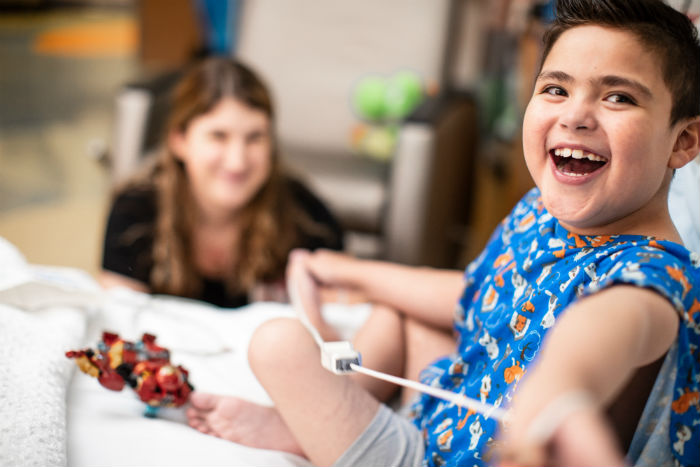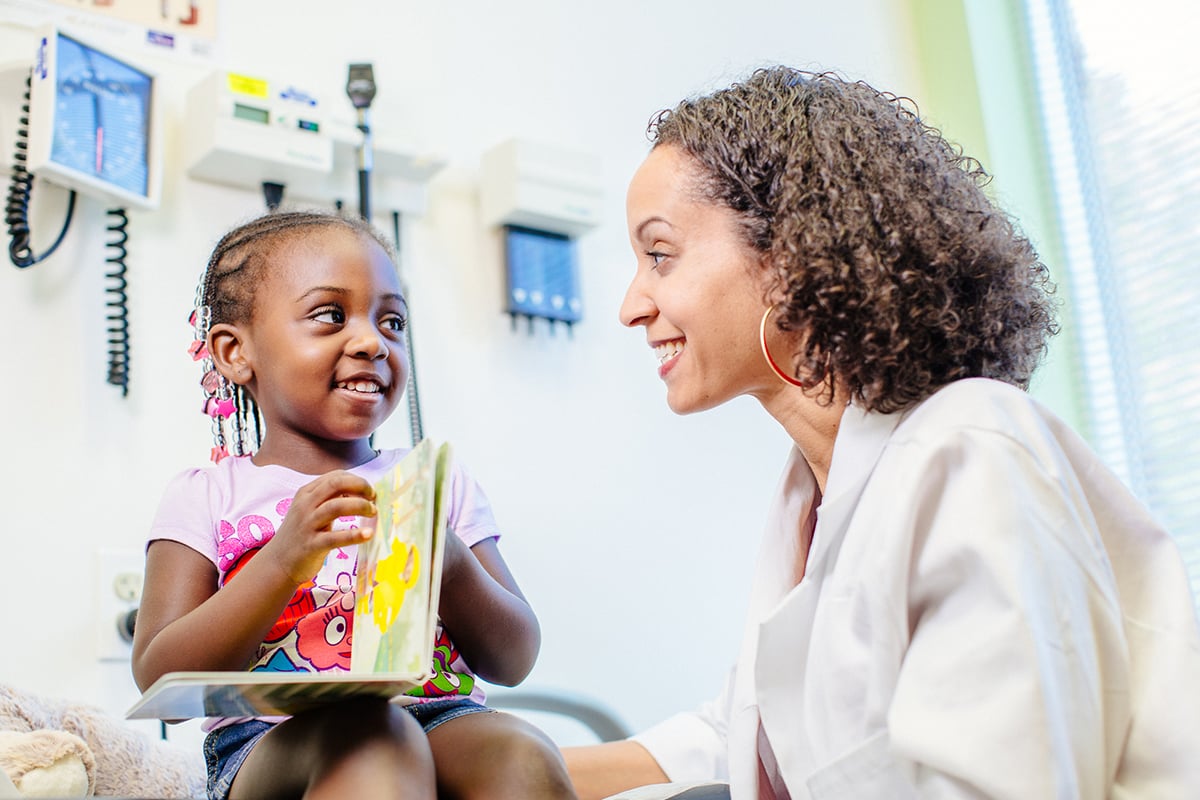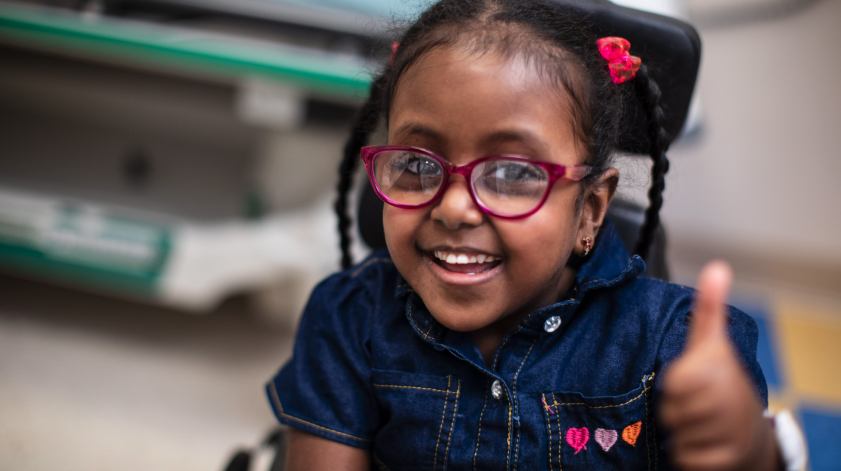The Children's National Hospital Rare Disease Institute and nationally-ranked Oncology department established the Cancer Genetics Program to help family members understand their personal risk of developing cancer and to learn more about the risk for their loved ones.
Our Providers
Our pediatric specialists provide personalized care for your child’s physical, mental and emotional health needs.
Contact Information
For more information about the Cancer Genetics Program, please contact us.

Our Mission
Our mission is to identify individuals with a greater likelihood for certain types of cancer and provide early detection and treatment. Ultimately, our goal is to prevent the development of cancer or additional cancers altogether.
Children’s National: Experts in Pediatric Genetics and Oncology
Our team is a leader in the recognition and care of patients with newly recognized cancer predisposition syndromes. A person with a cancer predisposition syndrome is at an increased risk to develop cancer sometime in his or her lifetime.
The Cancer Genetics Clinic sees many patients, including:
- Children with cancer
- Children with a past history of cancer
- Children with early-onset cancer and rare forms of cancer
- Children with a family history of cancer
- Parents of a child with cancer
- Couples who want to learn more about the risks to their other children or future Children's National Hospital adults with early onset cancers
- Adults at risk for cancer
- Children and/or family members with a known cancer predisposition syndrome
Our dedicated clinical geneticists and oncologists are available for individuals and families evaluated through the clinic. The Cancer Genetics team is led by:
- Joyce Turner, MS, CGC, director of the Cancer Genetics Program
If you have a cancer predisposition syndrome, we will work with you to find the most appropriate treatment. We can provide long-term care and identify and treat cancers early. In certain cases, we may be able to remove the cancer in its entirety.
Genetic Counseling and Testing
Every family's situation is unique, and the team at Children's National makes time to address individual concerns. The genetic counseling process involves reviewing a family’s medical history to better understand the types of cancer and pattern of inheritance in a family, as well as to determine whether an individual and family may be at risk for a cancer predisposition syndrome.
During the genetic counseling session, our specialists educate patients and their family members about the specific cancer syndrome in question, how it is inherited and who in the family may be at risk.
The discussion includes:
- Whether testing is the most appropriate course of action for the family
- Pros and cons of testing
- Available testing options
Depending on the medical findings, a consultation may also involve an evaluation by a geneticist.
Families should understand that genetic tests are different from other blood tests. Insurance preauthorization (approval) is usually necessary before testing. Once obtained, the testing process may take a few weeks to a few months, depending on the specific test being performed.
When test results become available, a follow-up consultation is scheduled to review the meaning of the results and to develop an appropriate plan of care.










